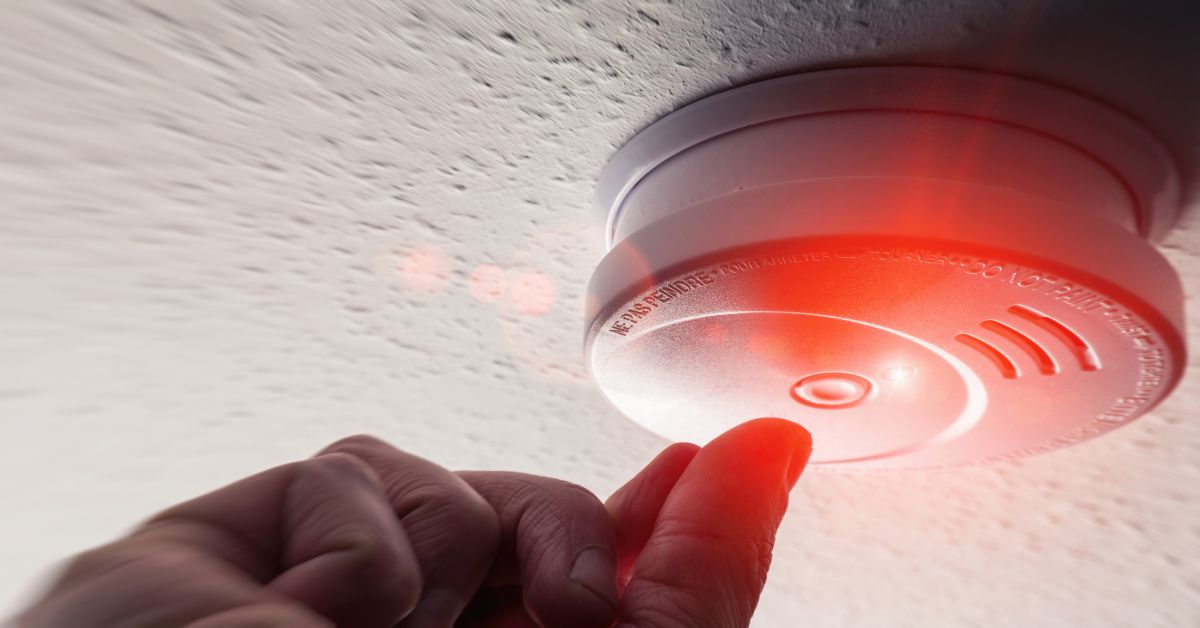The cost to install smoke detectors varies, typically ranging from $10 to $100 per detector, plus labor if professionally installed.
How Much Does It Cost To Have Smoke Detectors Installed
Smoke detectors are those small, unassuming devices on your ceiling that could save your life. They’re your house’s early warning system for fires, and having them installed is crucial. But how much does this vital safety investment actually cost?
The truth is, there’s no single answer. The total cost of having smoke detectors installed depends on several factors, including:
- Type of smoke detectors: There are a few different options out there, each with its own price tag.
- Installation complexity: Is it a simple swap-out, or do you need new wiring throughout your house?
- DIY vs. professional installation: Putting them in yourself will save money but requires some know-how.
Let’s dive into each of these factors to give you a clearer picture of the costs involved.
## Types of Smoke Detectors and Their Costs
Not all smoke detectors are created equal. Here’s a breakdown of the most common types and their general price ranges:
- Ionization smoke detectors: These are the most affordable option, typically ranging from $10 to $30. They work by detecting fast-flaming fires well.
- Photoelectric smoke detectors: Slightly pricier than ionization detectors, usually costing between $20 and $50. They’re best at detecting smoldering fires.
- Dual-sensor smoke detectors: Offer the best of both worlds, combining ionization and photoelectric sensors. Naturally, they’re the most expensive option, with prices ranging from $30 to $80.
- Smart smoke detectors: Connected to your Wi-Fi network, these offer advanced features like smartphone alerts and can cost upwards of $100.
Table 1: Smoke Detector Types and Costs
| Type of Smoke Detector | Price Range | Best For |
| Ionization | $10 – $30 | Fast-flaming fires |
| Photoelectric | $20 – $50 | Smoldering fires |
| Dual-sensor | $30 – $80 | Both fast-flaming and smoldering fires |
| Smart | $100+ | Advanced features and remote monitoring |
## Installation Complexity
The level of complexity involved in installing smoke detectors will also impact the cost. Here are a few scenarios:
- Replacing existing detectors: The most straightforward option. Costs will be minimal if done yourself and moderate if done by a professional.
- Hardwired installation (new wiring): This requires an electrician for safety. Expect labor costs to be a significant chunk of the price.
- Smart detector installation: These might involve additional setup and configuration, bumping up the installation costs slightly.
## DIY vs. Professional Installation
Are you handy and comfortable with basic electrical work? DIY can be a great way to save money on smoke detector installation. Here’s a rough cost comparison:
Table 2: DIY vs. Professional Installation
| DIY | Professional | |
| Cost of Smoke Detectors | Depends on type and number | Same as DIY |
| Labor Costs | Free | $50 – $100 per hour |
| Additional Costs | Possibly some tools/ supplies | May include materials and permits |
Important: If you’re not confident with electrical wiring, always hire a professional electrician. Your safety is much more valuable than saving a few bucks.
Cost Breakdown
To give you a more concrete idea of what to expect, here’s a general cost breakdown for a typical smoke detector installation project:
DIY Installation
- Basic battery-powered smoke detectors: $10 – $50 per detector
- Tools and supplies: Potentially around $20 – $50 if you don’t already have them.
Professional Installation
- Hardwired smoke detectors: $50 – $100 per detector (including materials)
- Labor costs: $50 – $100 per hour
- Permits (if required): Varies by location, but often $25 – $100
Example: Installing three hardwired smoke detectors in a medium-sized home could cost roughly:
- DIY: $150 – $300 (detectors + potential tools)
- Professional: $300 – $600 (detectors, labor, and possible permits)
Factors that Can Increase Costs
Keep in mind there are a few things that can make your smoke detector installation more expensive:
- Large homes: More square footage means more detectors, and more detectors mean higher costs.
- High ceilings: Installation on very high ceilings may necessitate special equipment and thus increase labor costs.
- Complex electrical systems: If your home has older or unusual wiring, it might be more challenging (and pricier) for an electrician to install hardwired detectors.
- Local regulations: Some areas have stricter codes around smoke detector placement, potentially increasing the number of units needed.
Tips for Saving Money on Smoke Detector Installation
Want to keep costs down? Here are some ways to make sure you get the best price:
- Shop around for detectors: Compare prices online and at local hardware stores.
- Buy in bulk: If you need multiple detectors, it can sometimes be cheaper to buy a pack.
- Look for discounts: Fire departments, insurers, and some local organizations may offer discounts or even free smoke detectors for eligible residents.
- Get multiple quotes: If you’re hiring an electrician, get estimates from several pros before making a decision.
- Consider DIY (if safe): This is the biggest way to cut costs if you are comfortable with the work.
Additional Considerations
- Smoke detector placement: The National Fire Protection Association (NFPA) recommends having smoke detectors on every level of your home, inside each bedroom, and outside each sleeping area. Check their website (https://www.nfpa.org/) for the latest guidelines.
- Maintenance: Test your smoke detectors monthly and replace batteries as needed (generally once a year). Replace the detectors themselves every ten years.
Conclusion
How much does it cost to have smoke detectors installed? Ultimately, the answer depends on the type of detectors you choose, the complexity of the installation, and whether you opt for DIY or professional help. However, the investment in smoke detectors is a small price to pay for the peace of mind and potential lifesaving protection they provide.
